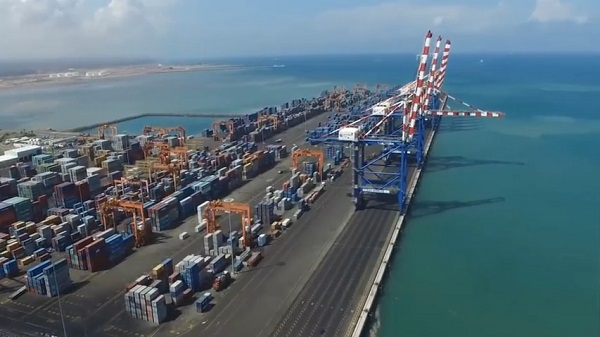
ADDIS ABABA (ENA)–The development of alternative ports with neighboring countries will help in enhancing foreign trade, according to Ministry of Trade.
In an exclusive interview with ENA, economics lecturer and researcher at Kotebe Metropolitan University, Soressa Tolcha, said utilizing Djibouti as the only port is challenging in the import and export trade.
The need for diversifying choices of ports is important, he added.
“Using one port for import and export crowds the port and delays the products from reaching destinations on time. It will also increase warehouse rent,” Soressa said.
According to him, alternative ports would alleviate the burden:
“The economic impact is massive when one has options. First, the expense or the hard currency for warehouse rent will decrease and products will reach destinations on time.”
In addition, infrastructure development will enhance economic integration between countries and create jobs.
However, the development of roads and other infrastructures is very important so as to transport the products to the different ports, Soressa explained.
Professor of Public Policy at Addis Ababa University, Dr. Costantinos Berhutesfa, said literally 99 percent of goods and services come to our country through Djibouti Port to Ethiopia.
As the government has attained huge economic success in the last decades, it has built industrial parks, dams, power generations and power transmissions plants and these require alternative that could efficiently handle imports and exports, he added.
“It has met the Millennium Development Goals more than any other country in Africa and this is very important because the government has done a lot of works in terms of infrastructure,” Dr. Costantinos said.
Thus, he noted that it is important to partner with Djibouti, Sudan and the other neighboring countries.
Ministry of Trade Public Relations and Communications Affairs Head, Wondimu Filate said the importance of expanding the country’s export presupposes the production of quality export commodities with required quantity and transporting them to their destinations in order to remain competent in the global market.
Apart from Djibouti, trade with Kenya could be fast-tracked by utilizing Kenya’s Mombasa Port and accessing Port Sudan to conduct efficient trade with the countries, Wondimu stated.
He noted that Ethiopia’s export transactions were limited only to Djibouti with no other viable alternative ports. The establishment of dry ports on the route to Djibouti has helped to speed up the trade transaction over time.
Nevertheless, “our region is not connected by infrastructure like cross-border roads that reach ports in Sudan and Kenya,” he added.
In this regard Wondimu said, “The agreements concluded recently with the neighboring countries will not only benefit Ethiopia but also Kenya, Sudan and Djibouti. We use Djibouti Port as our only option in a condition where there is no developed road infrastructure system that connects us with these countries,”
The Head stated that with the development of infrastructures which connect the country with these ports, export and import will be speeded-up.
According to him, foreign trade will continue to increase in number and variety in the remaining GTP II period.
The construction and expansion of infrastructures that connect the country will enable us to further increase export, he pointed out.
During the past nine months, commodities worth 863.19 million USD were exported to Asia, 576.87 million USD to Europe, and 428.27 million USD to Africa.
Source: ENA
